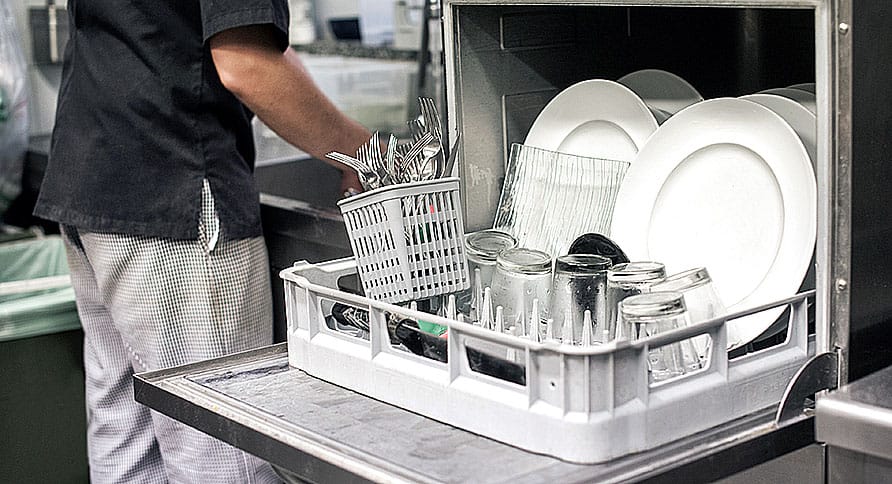Commercial dishwashers are amongst the most important kitchen appliances in the restaurant and hospitality industry. They are designed to wash and clean hundreds of dishes throughout the day. As a result, it is important that these machines are regularly maintained to prevent blockages and other factors that might impede performance and need the input of commercial appliances repair services. So, let’s take a look into how often a commercial dishwasher should be cleaned and how you should carry out the process.
Scrape Off Food Debris From Dishes
The first thing you need to do when it comes to cleaning a commercial dishwasher is to scrape off food debris from the dishes. Scraping and rinsing the dishes before putting them in the dishwasher prevents food from clogging the jets or the filter. Experts suggest that commercial dishwashers be cleaned every 20 cycles. However, if the machine is used more frequently, the cleaning interval is shortened.
In addition to that, scraping off food debris from dishes not only prevents clogging but also prolongs the life of the machine itself. You should remove any stubborn leftovers with quick rinsing so that blockages don’t occur. At the end of the day, you will be preventing large chunks of food from entering the machine that could cause all sorts of problems.
Always Follow The User’s Manual
Some people or restaurants believe they know more than the manufacturer. This is a silly mistake when it comes to maintaining commercial equipment. Commercial equipment as compared to standard household appliances is tough and can withstand years of wear and tear. However, that does not mean you can ignore the manual in terms of cleaning and maintenance.
Depending on the type and model of your commercial appliance, the recommendations of the manufacturer may vary. For instance, you might be using a particular chemical type to clean and maintain your older machines but that might not work out for the newer versions. These tiny details go a long way in prolonging the life of your unit.
Therefore, it is important that you consult the manual and inform the team about the basic cleaning and maintaining protocols so that you don’t end up with expensive repairs and replacements down the road.
Regularly Inspect The Dish Racks & Chemicals
Since commercial dishwashers are used on a regular basis, the racks may chip due to constant use. Generally, these racks are either coated or painted and when damaged can lead to a few issues. For instance, the chipped pieces of rust, as well as the covering, can clog the filters and even damage the pump of the dishwasher. Therefore, if the racks are damaged, you can choose to paint them using waterproof food-grade paint or purchase new racks each time.
Apart from checking the chemicals, it is equally important to check the chemicals too. Commercial dishwashers use sanitizer, detergent, and rinse aid. These chemicals are used by the machine to produce sparkly clean dishes. Therefore, if the chemicals need to be changed and are ignored, your customers won’t be happy while being served dirty dishes. To be on the safe side, you should consult the user’s manual and only use chemicals that are recommended by the manufacturer.
Cleaning the Filter
And finally, you should regularly check the filter and replace them if due. Food waste can block the drainage and also make the appliance smelly. With that said, you should clean the filter every 20 cycles, depending on the usage frequency of the machine. The more the frequency, the shorter the cleaning interval.
To clean the filter, simply use a soft brush and running water to remove stubborn stains and particles. However, make sure to not beat the filter against anything to remove the food waste as it can damage the filter. In that case, you would need to replace the filter altogether.
Final Word
Commercial dishwashers need thorough cleaning and maintenance to keep them running for years without any problems. If you are not familiar with maintenance protocols, consult a commercial dishwasher repair McLean technician who will help fix any issues, preventing your business from coming to a stop. Remember, your business will only run as good as the condition of appliances and equipment in the commercial kitchen.


